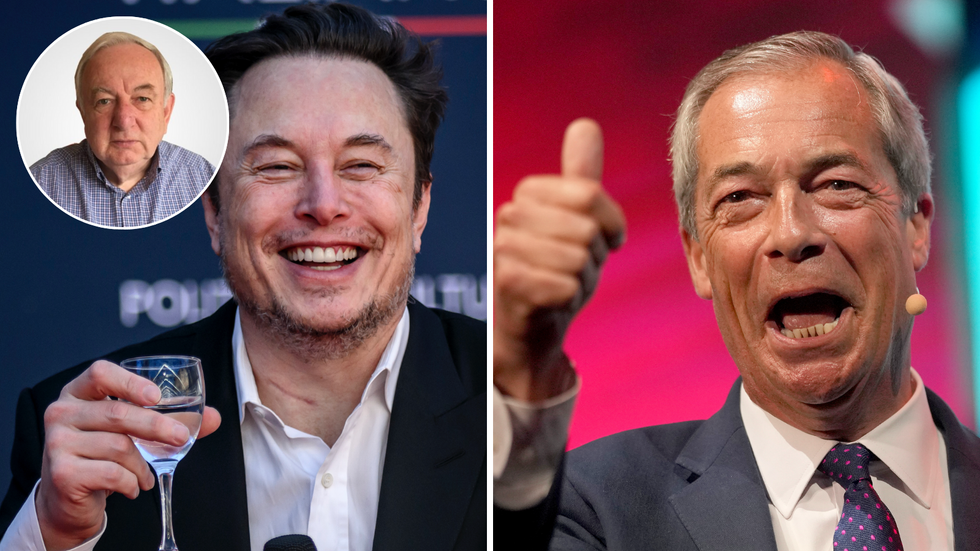There has been a media furore around the idea that Elon Musk may be planning to donate somewhere in the region of $100million (£80million) to Nigel Farage’s Reform Party.
The story initially broke in the Sunday Times, where it was claimed that various Conservative party bigwigs were running scared after hearing that Musk was seriously considering channelling a truly extraordinary sum to their primary political rivals.
Buoyed by a successful pick in the recent US presidential election, which, incidentally, boosted his net worth by around $50billion (£40billion), many journalists believe that Musk is now intent on boosting the electoral hopes of the British Donald Trump and his motley crew of convicted criminals and real estate tycoons.

Elon Musk’s potential donation to Reform UK reveals the truth about Westminster, writes Lord George Foulkes
GB News/Getty Images
Add to this his publicly expressed opposition to our current PM and Labour Government, and the idea that Reform could soon be launching a £80million campaigning operation across Britain, becomes somewhat credible; however, Farage has been quick to categorise these rumours as nothing more than speculation.
This would also make perfect sense: Musk is a marketer, first and foremost, and insinuating a foray into British politics helps keep his name trending across most front pages.
There are also some logistical matters which would need ironing out, such as how he would make the donation and generally avoid drawing the ire of the Electoral Commission.
Some have suggested it could be done through the British arm of one of his companies (X or Tesla), while his estranged father floated the idea he might apply for British citizenship.
Ultimately, the “how” actually matters very little, as the maximum fine the EC could impose is £20,000 – pocket change for a multi-billionaire.
In case you were wondering, I am wholeheartedly opposed to the idea an American tech tycoon can effortlessly plough money into our political system, but I think the Musk debate obscures far more critical, albeit related, issues around political financing.
Over the last twenty years or so, almost one-fifth of all major political donations have been made by a group of just ten men. This totals around £106million, donated to political parties and campaigns, often in return for honours and access to senior members of government.
Furthermore, a recent report by Transparency International has highlighted that roughly £1 in every £10 donated to a political party in this country comes from unknown or dubious sources.
Our system was broken well before Musk arrived on the scene; we should consider ourselves lucky it took this long for the threat of “real” money to loom large over British politics.
The solution, in my opinion, is threefold. First, we must cap political donations: there is broad support for some form of a cap, with the cross-party Committee on Standards in Public Life recommending a cap of £10,000 per individual donor.
Second, we need to tighten the requirements around reporting donations. This means lowering thresholds for disclosure and possibly stopping companies from being allowed to donate to politics altogether.
Lastly, the Johnson premiership left a long legacy of corruption, including stripping the EC of its independence. This should be returned, along with higher penalties (fines) for violations of the code, and a broader set of investigatory powers.
Thankfully, we have elected a government with a moral compass and I am confident that Starmer and his team will finally tackle this rot, which has grown unchecked under more than a decade of careless Conservative government.
In fact, I would not be surprised if we start to see some cross-bench consensus on this matter, particularly if Reform continues to pick off Conservative candidates in local elections.
With multi-party collaboration, we could well see new, effective legislation introduced within the next few years. In which case, we may have Musk to thank for stirring up the kind of panic that is often needed to drive through change at Westminster.